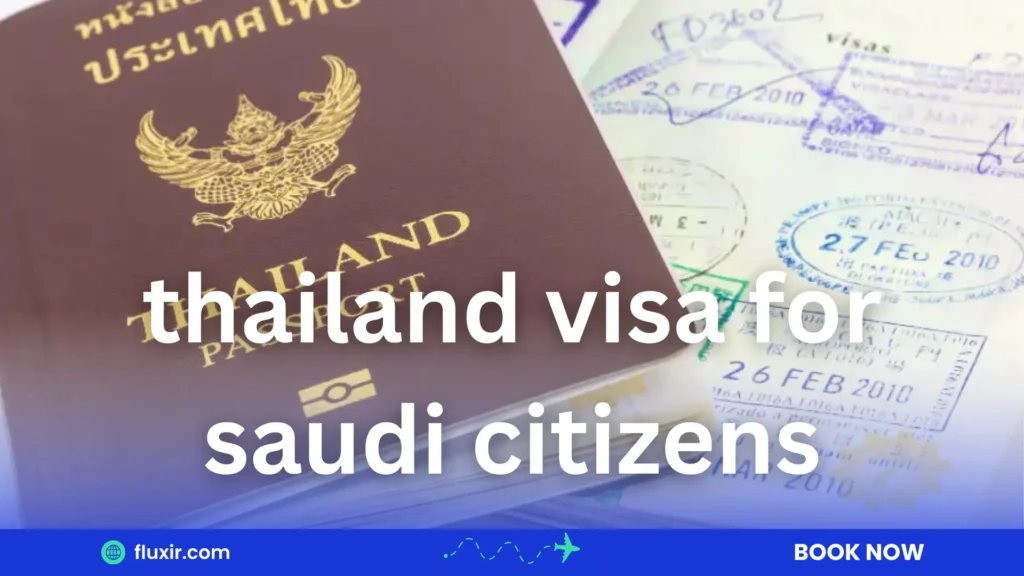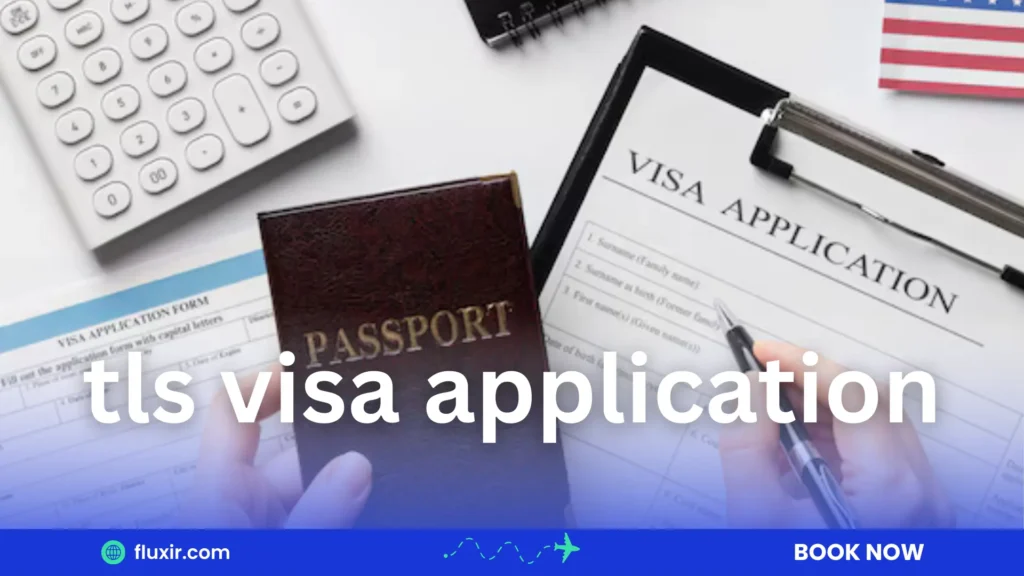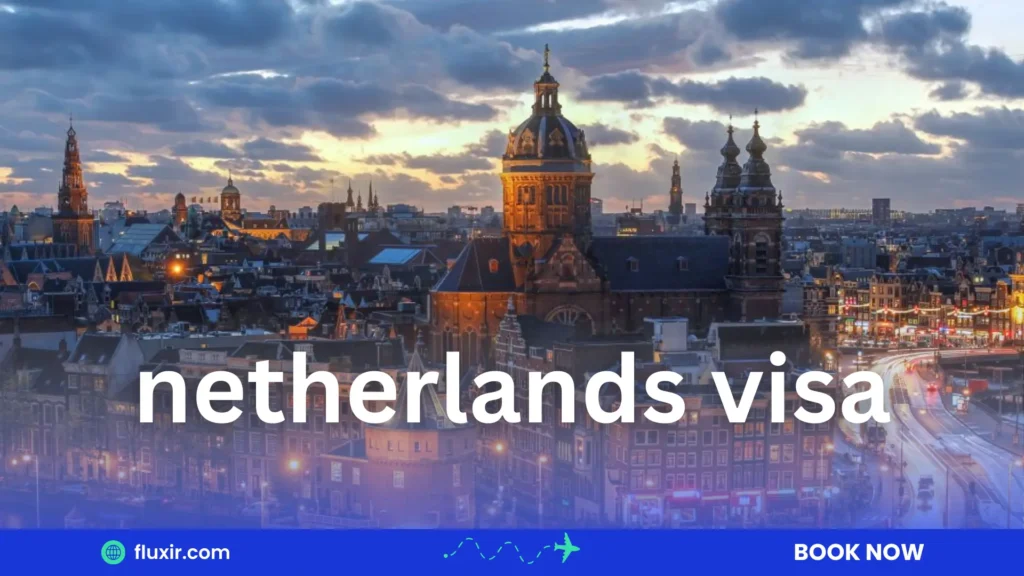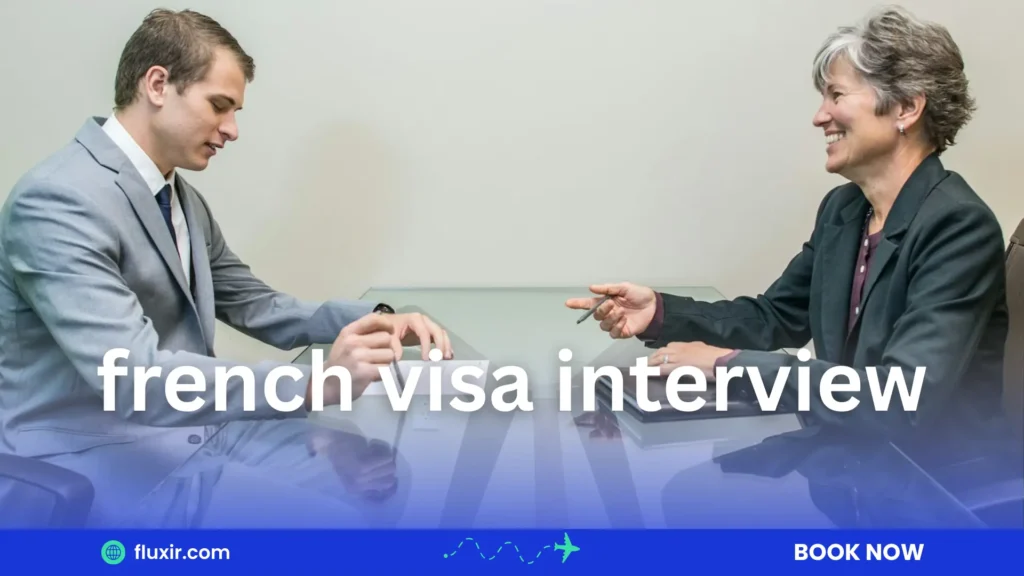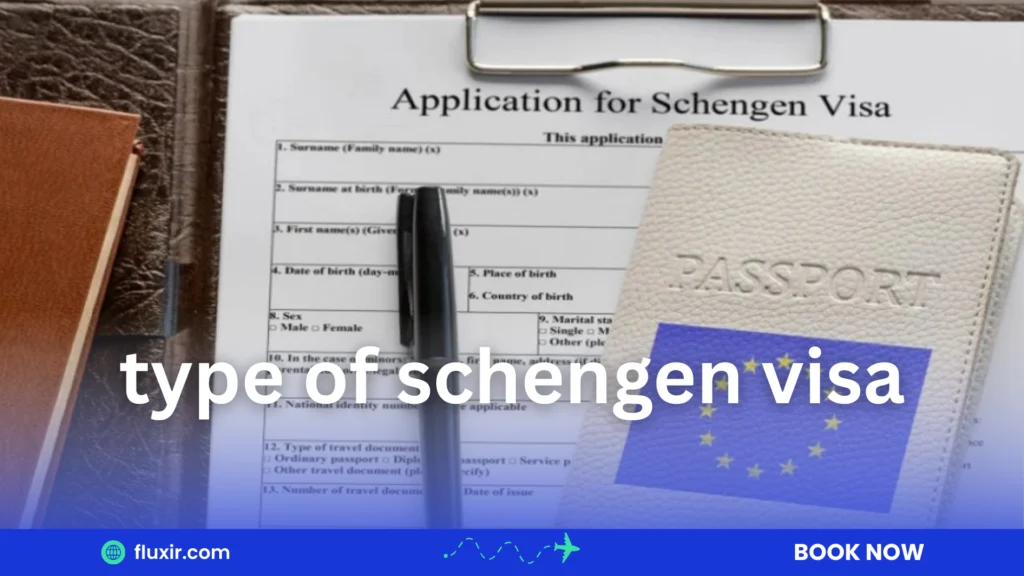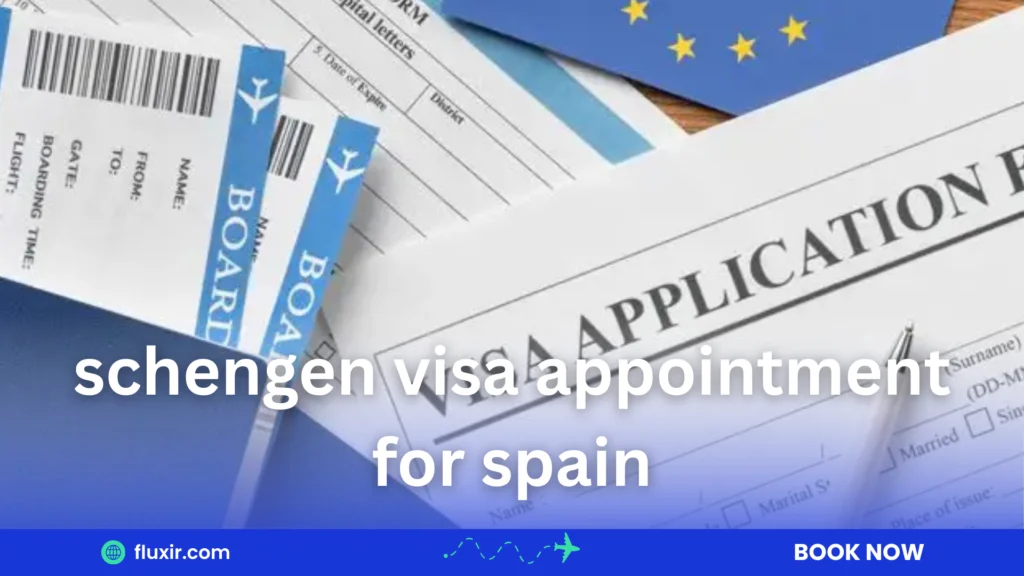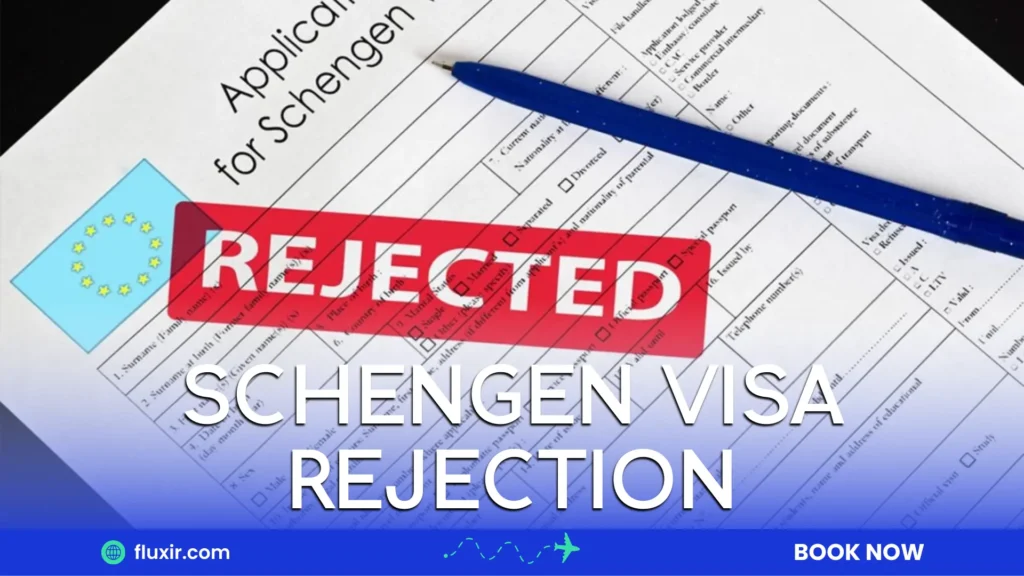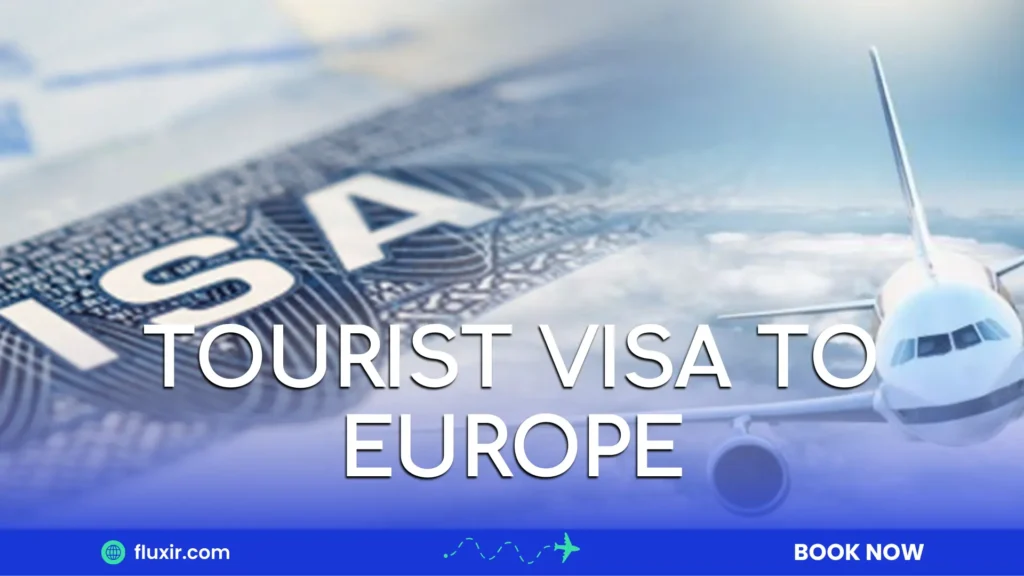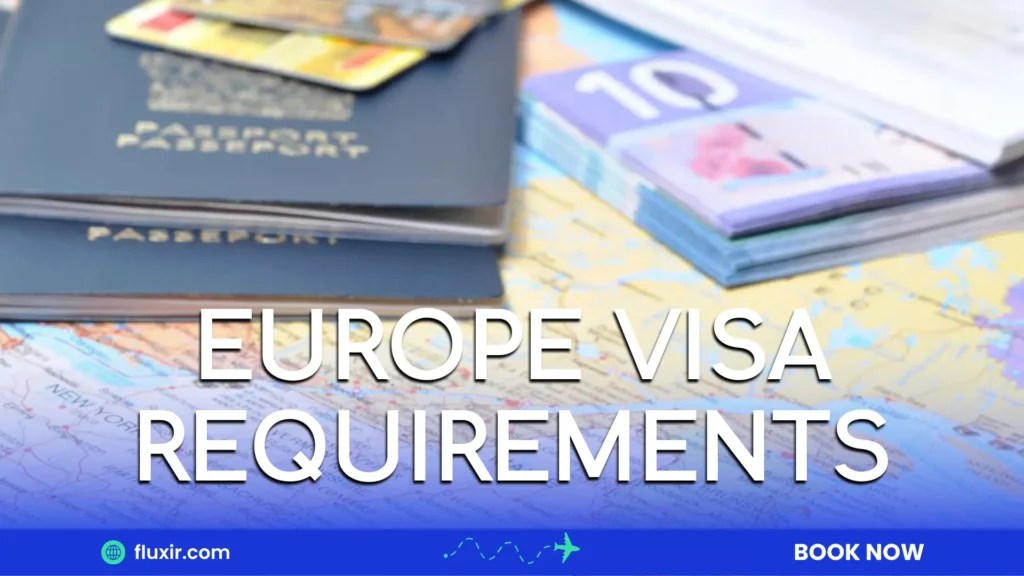Thailand Visa for Saudi Citizens: How to Apply, Processing Time, and How Fluxir Can Help
Before traveling to Thailand for any purpose, you’re probably wondering about the visa requirements. In 2025, the process of obtaining a Thailand visa for Saudi citizens has become easier, especially with digital applications like the e-visa. In this guide, we’ll explain everything you need to know, whether you need a visa, how to apply, how long it takes, and how Fluxir can assist you in making the process even smoother. Do Saudis Need a Visa for Thailand? Yes, Saudi citizens currently need a visa to travel to Thailand. However, the process is straightforward and offers multiple options depending on the purpose and length of your stay. Whether you’re visiting for tourism, business, or even medical treatment, you must have a valid Thailand visa before entering the country. Fortunately, the Thai government now offers an e-visa service, making it easier than ever for Saudi travelers to apply without visiting the embassy. How to Apply for a Thailand Visa for Saudi Citizens Applying for a Thailand visa for Saudi citizens can be simple if you follow the right steps. Here’s a detailed breakdown of the process: Choose the Right Visa Type Depending on your travel purpose, you may apply for the appropriate thailand visa for saudi citizens: Tourist Visa (TR): For tourism and leisure stays up to 60 days. Business Visa (B): For business-related visits. Medical Treatment Visa: For those seeking health services in Thailand. Transit Visa: If you are stopping over in Thailand on your way to another country. Prepare Your Documents The following documents are typically required to obtain thailand visa for saudi citizens: Valid passport (must be valid for at least six months) Completed visa application form Recent passport-sized photographs Proof of accommodation (hotel bookings or invitation letter) Travel itinerary or flight booking Proof of financial means (bank statements) Visa fee payment receipt Travel insurance (highly recommended) If you are applying for a business visa, you’ll need an invitation letter from the company in Thailand. Submit Your Application You have two main options: Apply through the Thai Embassy or Consulate in Saudi Arabia (for regular visas) Apply online through the Thailand e-visa portal (highly recommended for tourist visas) Applying online saves time, reduces paperwork, and provides a faster decision. Pay the Fees Visa fees vary depending on the visa type and duration. For example, a single-entry tourist visa usually costs around SAR 150–200. Payments can often be made online during the application process. Wait for Approval After submission, your application will be reviewed. If applying online, you’ll get email updates on your visa status. Once approved, you’ll receive your e-visa via email, which you can print out and carry when traveling. How Long Does It Take to Get an E-Visa for Thailand from Saudi Arabia? The processing time for an e-visa application is generally quick. For Saudi citizens, it usually takes about 3 to 7 working days after submitting the complete application. However, during peak travel seasons (like holidays), it might take a little longer. That’s why it’s always a good idea to apply at least 2–3 weeks before your planned departure date to avoid any last-minute stress. Important Tips When Applying for a Thailand Visa To increase your chances of quick approval for thailand visa for saudi citizens, you must: Make sure all your documents are clear, complete, and up-to-date to avoid delays or potential rejection of your Thailand visa. Double-check your passport’s expiration date and ensure it is valid for at least six months beyond your intended travel dates. Provide honest and verifiable travel plans along with strong financial proof to demonstrate your ability to support yourself during your stay. Apply for your Thailand visa well in advance, especially during peak seasons, to avoid last-minute complications or unexpected processing delays. Regularly track your visa application status online to stay informed about updates, requirements, or additional steps you may need. How Fluxir Can Assist You in Getting a Thailand Visa from Saudi Arabia At Fluxir, we know that handling visa paperwork can be confusing and time-consuming. That’s why we make it easy for Saudi travelers to get their Thailand visa without the hassle. Here’s how Fluxir helps with thailand visa for saudi citizens: Document Checklists: We guide you through every document you need. Application Assistance: From filling out the forms to uploading the documents correctly, we assist you at every step. Consultation and Support: Our team is ready to answer all your visa-related questions. Real-Time Tracking: Know exactly where your application stands. Reminders: Never miss an important step or document submission deadline. Fast Processing: We make sure your application is processed as quickly and efficiently as possible. Traveling to Thailand should be exciting, not stressful. Let Fluxir take care of the visa process for you so you can focus on planning your perfect trip. Start your journey to Thailand today with Fluxir If you’re a Saudi citizen planning a trip to Thailand, don’t let visa worries hold you back. Fluxir is here to simplify the process with expert assistance, real-time updates, and a smooth, stress-free application experience. Apply for your Thailand visa through Fluxir now and get ready to explore the beauty of Thailand with complete peace of mind.

